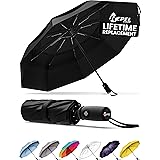Planning a vacation and looking forward to creating lasting memories can be an exhilarating experience. However, it is crucial to stay alert and cautious, as tourists often fall victim to scams. To ensure a fun and hassle-free trip, it is important to be aware of common scams and take necessary precautions. By learning about your destination, using trusted resources, being vigilant with your belongings, and staying in touch with loved ones, you can navigate your vacation with confidence. Additionally, being mindful of deals that seem too good to be true, sharing only necessary information, being smart with your finances, learning basic local phrases, and trusting your instincts can further safeguard you from potential scams. With these ten strategies, you can enjoy a safe and enjoyable vacation without falling prey to scammers.
Learn about common scams
Have you ever experienced fraud at the airport? In Texas, a man tried to board a plane with a photo of another passenger’s ticket. It’s a good thing that the real owner was already on board and not left without a ticket. To begin, let’s talk about some of the most common scams you might run into while you’re away.
Search vacation packages & trips
Fraud at the airport
Airports can be busy and overwhelming, making them a prime target for scammers. One common scam involves someone pretending to be an airport employee and offering to help you with your bags. They may then take your belongings and disappear. Always be cautious and only accept help from official airport staff.
Free tickets for a timeshare presentation
Another common scam is the offer of free tickets to a show or attraction in exchange for attending a timeshare presentation. While it may seem like a great deal, these presentations are often high-pressure and can lead to unwanted financial commitments. Be wary of any offers that seem too good to be true.
Overcharging by taxi drivers
Taxi drivers in tourist areas may try to overcharge you by taking longer routes or claiming their meter is broken. To avoid this, it’s important to research the typical fare for your destination and agree on a price before getting into the taxi. Additionally, consider using ride-sharing services or trusted transportation apps to ensure a fair price.
Find out about your destination
It’s true that knowledge is power! Before you embark on your vacation, it’s important to gather information about your destination to avoid falling victim to scams.
Research local scams
Every destination has its own unique set of scams targeting tourists. Take the time to research the common scams in your chosen location. By knowing what to look out for, you can be better prepared to avoid falling for these tricks.
Identify tourist traps in the area
Tourist traps are popular attractions or areas that often exploit tourists for financial gain. These can include overpriced restaurants, shops, or guided tours. Researching and identifying these tourist traps beforehand will help you make informed decisions and avoid unnecessary expenses.
Use resources you can trust
When it comes to planning your vacation and gathering information, it’s essential to utilize reliable sources to ensure your safety and avoid scams.
Utilize reliable travel websites
Websites like TripAdvisor and Yelp offer reviews and recommendations from fellow travelers. These platforms can provide valuable insights into the safety and legitimacy of various services and establishments. Pay attention to reviews that mention scams or fraudulent activities.

Top domestic vacation destinations
Double-check information with hotel or local contacts
While online resources can be helpful, it’s always a good idea to double-check information with your hotel or trusted local contacts. They can provide firsthand knowledge and advice specific to your destination. Plus, they may be able to recommend reputable tour operators or service providers.
Be careful with your things
Protecting your belongings is an essential aspect of avoiding scams and theft while on vacation.
Use a money belt or secure backpack
Pickpocketing is a common issue in crowded tourist areas. To minimize the risk, consider using a money belt or a backpack with secure closures to keep your valuables safe. These methods make it more difficult for thieves to access your belongings without your knowledge.
Avoid making yourself an easy target for pickpockets
Pickpockets often look for targets who appear distracted or vulnerable. Avoid displaying expensive jewelry or electronics openly, and be aware of your surroundings. Stay vigilant and keep your belongings close to you, especially in crowded areas such as markets or public transportation.
Be wary of deals that seem too good to be true
While it’s always exciting to find a great deal, it’s important to exercise caution when encountering offers that seem too good to be true.
Beware of suspiciously low-cost offers
Scammers may lure tourists in with incredibly low-cost offers for accommodations, tours, or attractions. These offers often come with hidden fees or subpar services. Remember to research the average prices for similar offerings and be skeptical of significantly discounted options.
Consider the potential hidden costs of discounted deals
Discounted deals can be tempting, but they may come with hidden costs. It’s essential to carefully read the fine print, especially when booking accommodations or purchasing tour packages. Hidden fees or additional charges can quickly turn a seemingly good deal into a financial burden.
Share only what you need to share
While it’s natural to want to connect with new people while traveling, it’s important to be mindful of the information you share, especially with strangers.
Limit personal information shared with strangers
Avoid sharing sensitive personal information, such as your full name, address, or travel itinerary, with people you don’t know well. This information can be used against you by scammers or identity thieves. Share only what is necessary for the situation and only with trusted individuals.

Be mindful of sharing private details that could be used against you
Additionally, be cautious when discussing your financial situation or plans with strangers. Loose lips can attract scammers who may try to take advantage of your vulnerability. Stay alert and trust your instincts when deciding what information to disclose.
Stay in touch
Keeping communication channels open is crucial for your safety while traveling.
Keep your phone charged and accessible
Ensure that your phone is always charged and easily accessible, especially in case of emergencies. A dead or unreachable phone can leave you vulnerable and cut off from vital assistance. Carry a portable charger or make use of charging stations whenever possible.
Use location-sharing apps to inform trusted contacts about your whereabouts
Location-sharing apps can provide an extra layer of security by allowing trusted friends or family members to track your location. This can be particularly useful when exploring unfamiliar areas or engaging in potentially risky activities. Share your itinerary with your contacts and update them regularly.
Be smart with your cash and credit
Managing your finances wisely while on vacation can help protect you from scams and unexpected expenses.
Avoid carrying large amounts of cash
Carrying large sums of cash can make you a target for thieves. Instead, use ATMs or exchange money in moderate increments to ensure you always have enough for your needs without attracting undue attention. Consider using a travel card or credit card with low foreign transaction fees for added convenience and security.
Use credit cards with fraud protection
Credit cards with robust fraud protection can provide an extra layer of security when making purchases. Look for cards that offer zero-liability policies, meaning you won’t be held responsible for fraudulent transactions. Notify your credit card company of your travel plans to prevent any potential issues with card usage.
Check for foreign transaction fees
Before using your credit card abroad, be aware of any foreign transaction fees that may apply. These fees can quickly add up, significantly increasing the cost of your purchases. Consider using cards that offer no or low foreign transaction fees to save money during your travels.
Learn some basic local phrases
Having some knowledge of the local language can be invaluable when navigating new environments and avoiding scams.
Polite language skills can help avoid scams
Learning basic polite phrases in the local language can help you establish a connection with locals and deter potential scammers. It shows that you have taken the time to respect and appreciate their culture, making you less of a target for dishonest individuals.
Simple questions or clarifications in the local language may deter scammers
Being able to ask simple questions or seek clarifications in the local language can also help you navigate unfamiliar situations. Scammers targeting tourists may be less likely to approach someone who appears knowledgeable and confident in their interactions.
Trust your gut
Your instincts are powerful tools in keeping yourself safe while on vacation.
Trust your instincts when something feels off
If a situation or interaction feels off, trust your instincts. Intuition often picks up on subtle cues and signals that something may be wrong. It’s better to prioritize your personal safety over politeness. If something doesn’t feel right, remove yourself from the situation as quickly as possible.
Prioritize personal safety over politeness
Tourists often feel pressured to be polite in unfamiliar environments, even when their gut tells them something is wrong. Remember that your safety and well-being should always come first. Don’t be afraid to decline offers or walk away from uncomfortable situations, even if it means being perceived as impolite.
In conclusion
Your vacation should be a time of relaxation and enjoyment, free from the worry of scams. By staying informed, using reliable resources, securing your belongings, and trusting your instincts, you can minimize your chances of falling victim to common scams. Remember to prioritize your personal safety above all else and have a fantastic trip!






